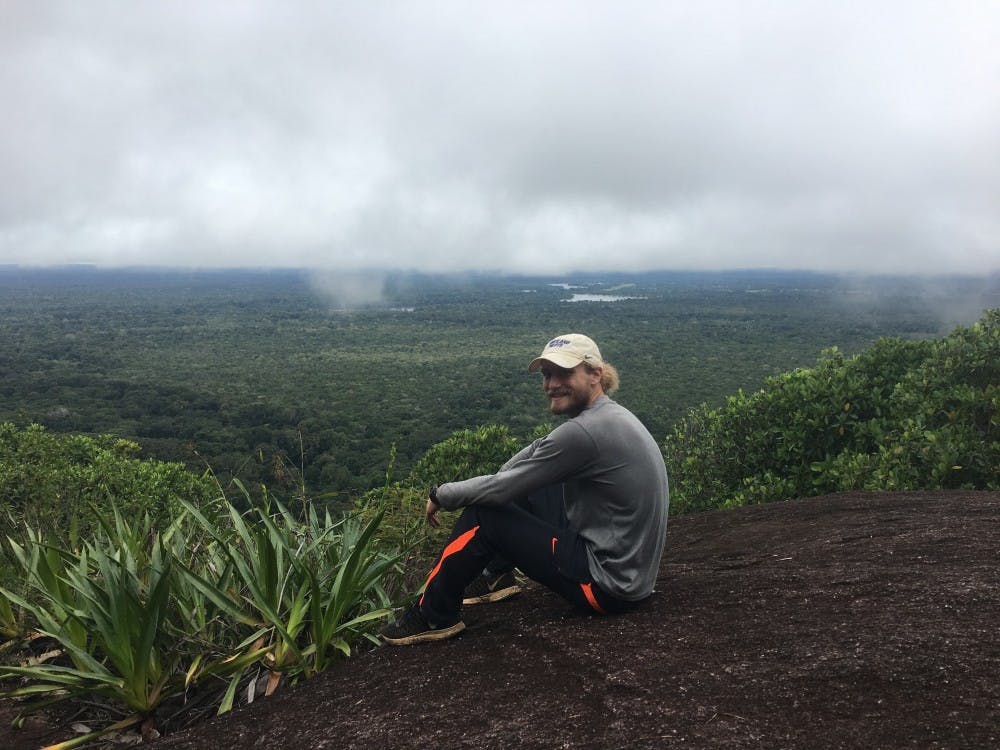Trekking through rainforests, helping children, engaging in local customs and being an advocate for public health. This was senior David Gloyd’s experience as an intern for Sinergias, a nonprofit organization in Colombia dedicated to serving communities historically affected by conflict and poverty.
The biology major spent four months of his summer completely immersed in Colombian culture and fostering relationships centered around public health.
Gloyd’s initial interest in this opportunity started long before his departure date. Having a passion for travel, recognizing the internship’s connections to his major and seeing the work of close family members encouraged him to explore the public health field.
His internship was divided into two parts. His first month was spent in Bogotá, the capital of Colombia, which gave him the opportunity to study Colombian culture, practice his Spanish and learn about problems the people of that country face.
The second half of Gloyd’s volunteer experience was located in Vaupés, where the main hub of medical clinics are. Here, Gloyd volunteered in the field, presented health topics and collaborated with community members.
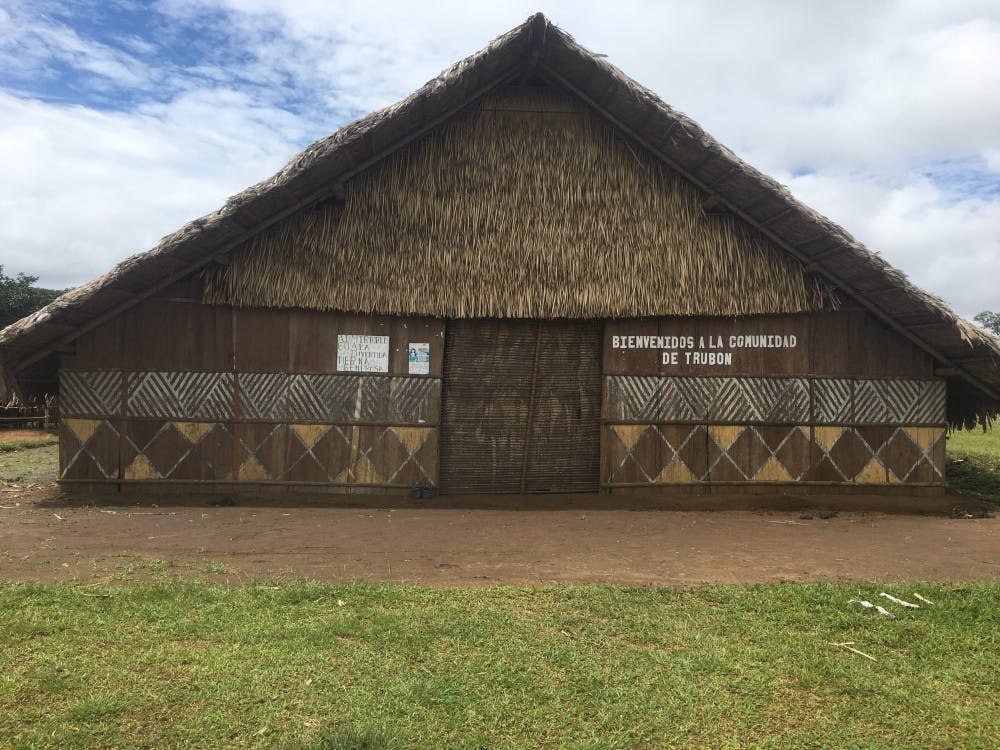
The Maloca of Trubon is a communal building usually located in the center of each town. This is where meetings occur, children go to play, religious ceremonies are held and where Gloyd's company, Sinergias, would hold workshops on improving health of the community.
Photo submitted by Gloyd.
Many of the communities receiving services from Sinergias were widespread and remote, so volunteers would travel by motorcycle or in motorized canoes or boats. Gloyd primarily travelled using motorized canoes to reach areas less accessible by road.
Community members were very generous, often letting Gloyd set up his hammock and sleep in their house.
“Every time I would go somewhere with the nursing assistant they would offer me breakfast or they would offer me lunch or they would offer me water, they would offer me something to drink, something to eat,” Gloyd said. “The people were really really friendly out there, but they have also experienced a lot.”
Many of the issues facing Colombia today stem from past colonization, which has left lasting divides between Western and traditional culture. Children are taught to practice more Western traditions than their own native culture, which has had unintended consequences for communities, Gloyd said.
Gloyd gave the example of traditional diet versus the diet that many communities follow. Families hoping to save money will often purchase canned food such as tuna and fish. These have a much higher sodium content than the typical indigenous diet of fish and casabe, a healthy bread that looks like a rice cake but has a chewy consistency, Gloyd said. This change in diet often leads to obesity.
One of Gloyd’s responsibilities was to help nursing assistants take body measurements of children who were considered obese or at risk of obesity. They would look at data that had been collected over the past seven years to find health trends that could shed light on ways to help the children in these communities.
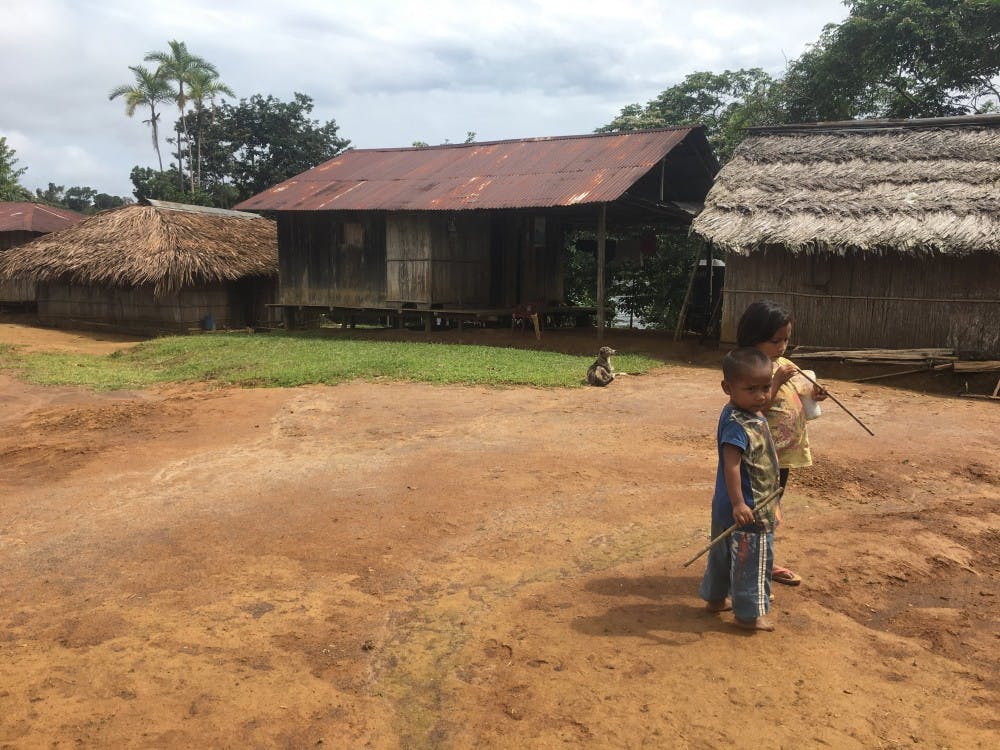
Children from the community of Trubon in Vaupés play outside.
Photo submitted by Gloyd.
Gloyd’s experience tied closely to his work as a biology major. In addition to his life as a student, he is a TA in anatomy and physiology.
One of Gloyd’s professors, Professor John White, said Gloyd is upbeat, positive, energetic and engaging — several of the characteristics that led him to hire Gloyd as a TA.
“One of the challenges as an A&P TA is that you have to overcome your own fears about approaching your peers and trying to help them, and I knew that he would not have an issue with that,” White said.
For Gloyd, one of the hardest parts of giving health presentations in Colombia was explaining highly technical information to members of the community. Gloyd had taken Spanish in the past, including some courses at the university level. In many cases, community members spoke primarily indigenous languages.
“Spanish is their second language,” Gloyd said. “They learn it in school but they speak the indigenous language as well, which is called Cubeo. There’s like five or six (indigenous languages) out there but Cubeo was the one that I was involved with mostly, or Tucano. They practiced (their Spanish) in the town and everything, but it was like two second-language Spanish speakers coming together.”
According to Gloyd, one of the reasons why Sinergias has been so successful in Colombia is that they take time to interact with the region's cultures. Because the volunteers are dedicated to working with individuals to understand how their communities function, they can implement health plans that are specially designed for them.
“I think that’s the really important part is adapting health systems to the culture, not trying to adapt a culture to a health system that works for this culture,” Gloyd said.
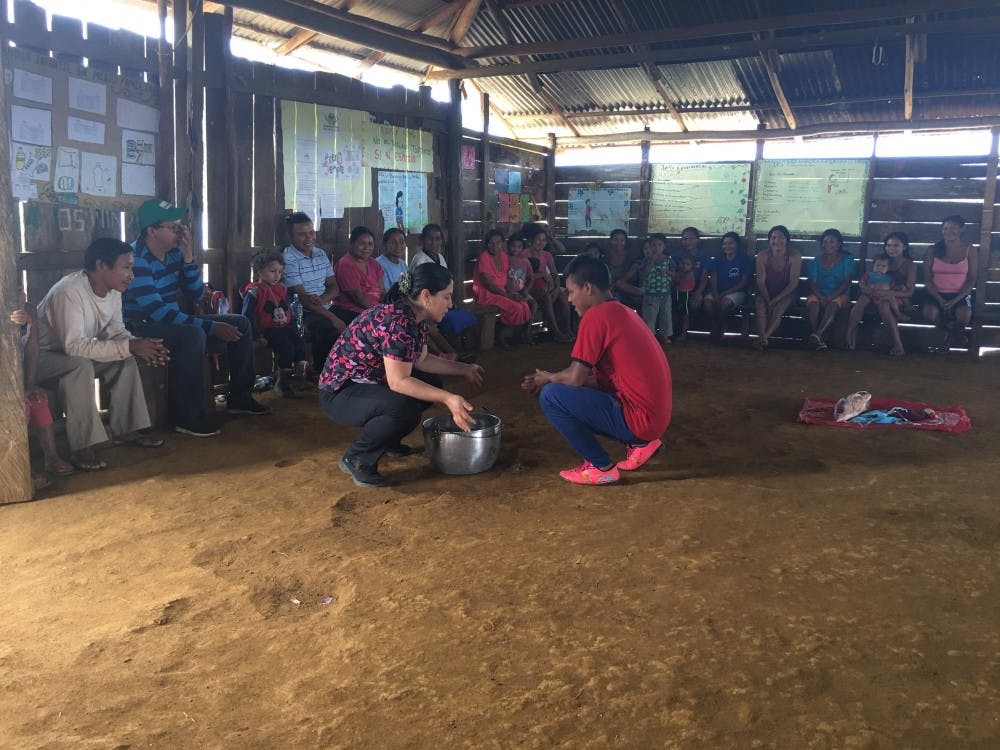
During Gloyd's internship, Sinergias lead an infection prevention workshop in Bogotá Cachivera, where they showed men how to correctly wash their hands so they can prevent infection when assisting women in child birth.
Photo submitted by Gloyd.
According to Pablo Montoya, director of Sinergias, interns and volunteers have to be open-minded and willing to experience a new culture and ways of thinking.
“People must be open to learning new realities, where many things we assume are granted for everyone do not exist,” Montoya said in an email. “Candidates must be committed to, in the long term, transforming their learning process into ideas and processes that facilitate local communities generating appropriate solutions to their problems. I think David met many of these conditions and can be a great an advocate for these communities.”
While in the field, Gloyd loved helping people and interacting with the children in the community.
“I really like seeing the smiles on kids’ faces when you’re out there and you got to put the band-aid on or whatever you had to do,” Gloyd said. “So yeah, it’s very fulfilling and I’d like to pursue a career like this for sure.”
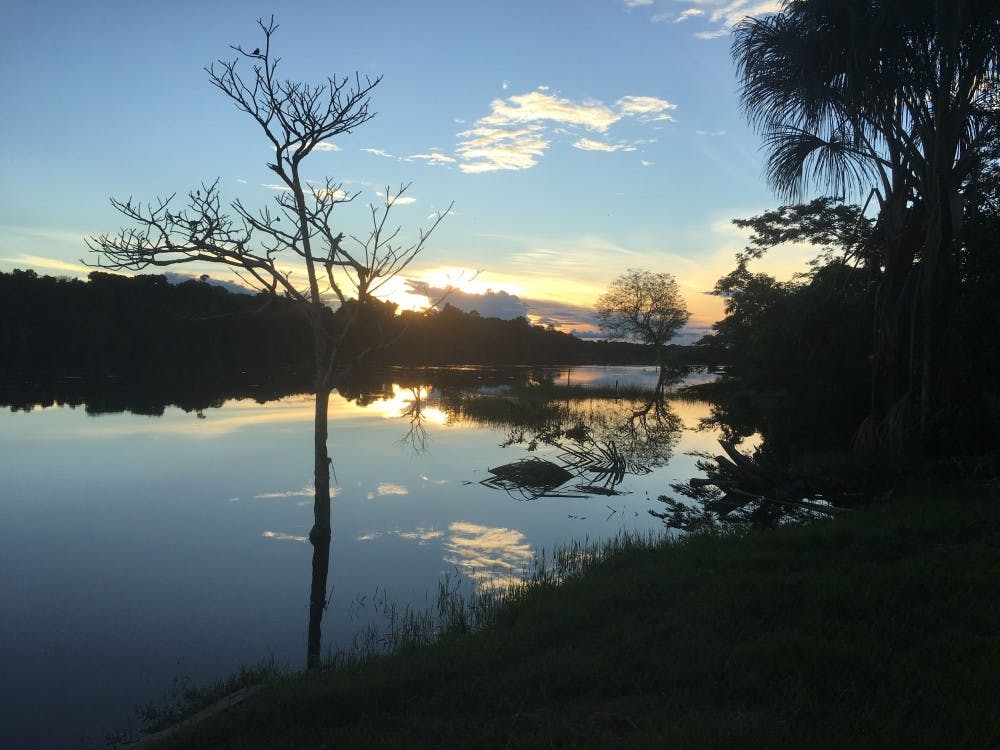
Gloyd viewed the sunset over the Vaupés River from the Point of Health in Macaquiño.
Photo submitted by Gloyd.
Gloyd’s experiences over the summer helped him narrow his focus on certain areas of biology and decide what he may want to pursue as a career, having now worked with many types of medical professionals in the field. Gloyd wants to gain more experience in health care in the future, possibly in a different community or culture. He hopes to get his M.D. and his masters in public health after he graduates.
When asked why this career and interest area was so important to him, Gloyd expressed gratitude for his family and an eagerness to help others.
“During my whole childhood (my family) supported me,” Gloyd said. “Whatever endeavors that I could be passionate about, whatever I could find and be interested in they would help me to pursue it, and not everybody gets that opportunity. I think that it is important for me to use that wealth — I would describe it as a wealth — to give back to populations that don’t get to experience that.”
Madison McManus is a reporter for The Beacon. She can be reached at mcmanus20@up.edu.



